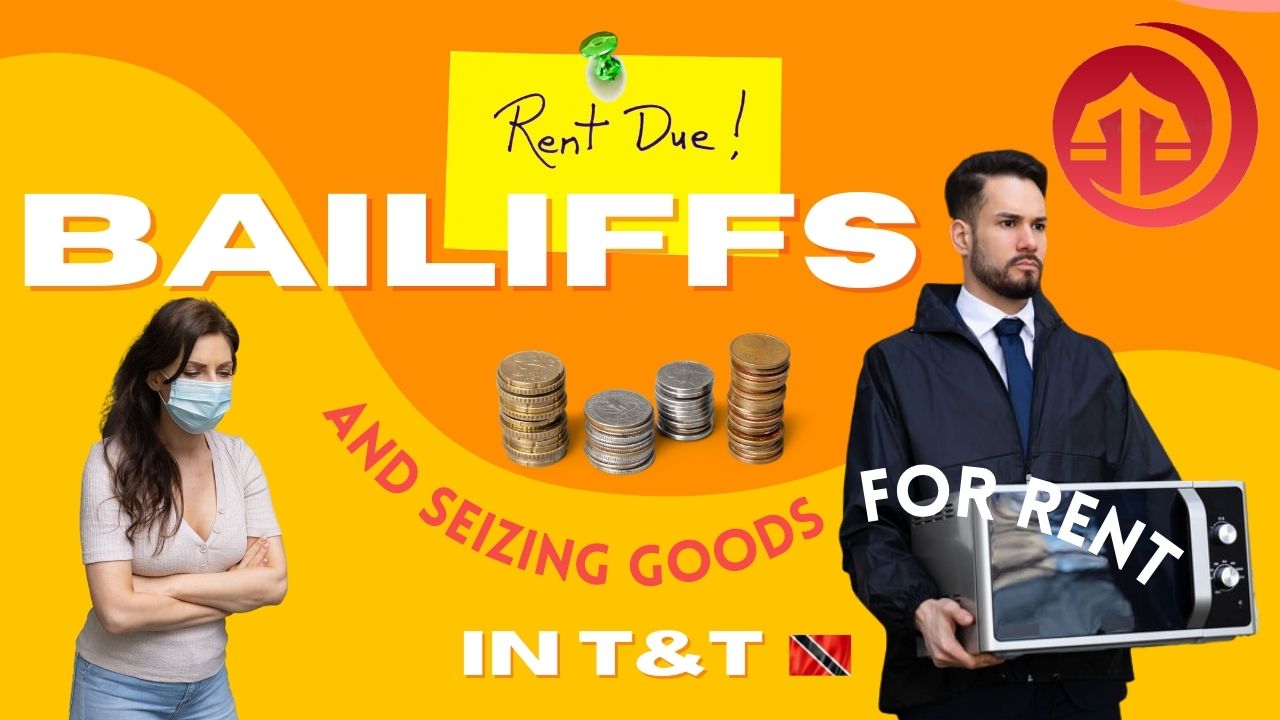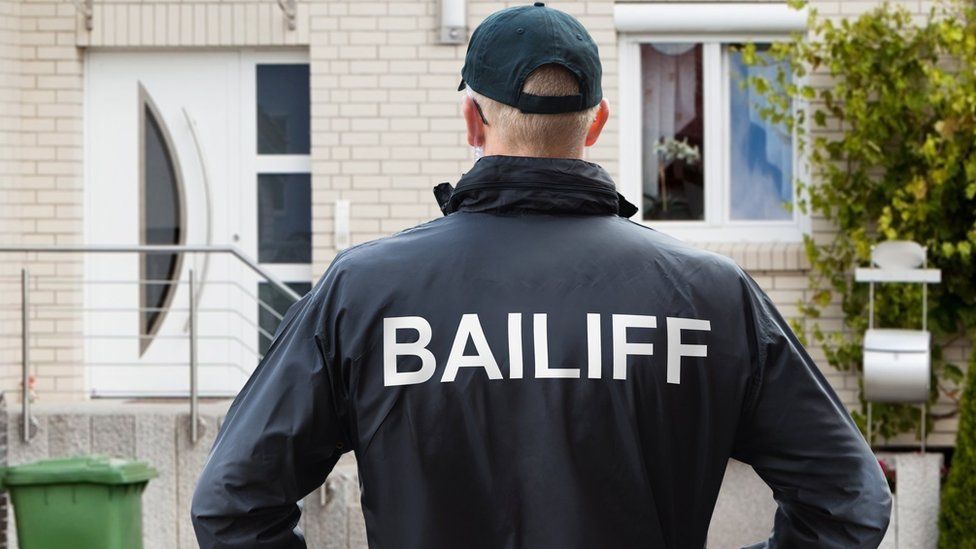|
It's the end of the month and rent is due but the rent has not been paid. What can a landlord do? A landlord without going to court can seize and retain (as security) goods found on the rented premises to compel the tenant to pay the rent that is owed. If the payment is not made, the goods seized may be sold to recover the monies owed. This is called the right to distrain. However, certain rules must be followed by the Landlord in exercising this right.
1. Certain factors must exist to give the Landlord the right to distrain goods.
2. Generally, a Landlord can only exercise distress on the rental premises. The general rule is that distress may only be levied on the rented premises, on all goods found there. Exceptions to this general rule are:
3. The person levying the distress should be a certified bailiff.
The Landlord may levy distress in person or through an agent (called a bailiff). The bailiff may be appointed and authorized verbally but it is usual, and advisable, for his authority to be in writing signed by the Landlord - called a Warrant of Distress. A warrant of distress creates on the part of the Landlord:
It should be noted that according to section 37 of Landlord and Tenant Ordinance Ch 27 No. 16: Bailiffs must be certified. No person shall act as a bailiff to levy distress unless authorized to act as such by a certificate in writing from a magistrate. Levying of distress by an uncertified bailiff is an illegal distress, and both the bailiff and the Landlord (who has authorized the bailiff to levy) will be deemed to have committed trespass.
4. The person must enter the premises peacefully (and not at night).
Any entry to exercise a distress on goods must be peaceful and effected by the usual means used by persons having access to the premises. No force whatsoever should be used. The distrainor must not break open or enter doors or gates or other enclosures such as fences, but he can break an inner door. He may enter through an open or unlocked door or open window or he may open an outer door by turning a key or lifting a latch which has to be on the outside. A closed but unfastened window cannot be used to enter the premises. Additionally, the time for the distress should not be between sunset and sunrise. No one has a right to make a distress in the dark and it should also not occur on Sundays.
5. Only certain items can be seized.
The general rule is that goods found on the rental premises can be distrained. However, certain goods are privileged and cannot be seized - this privilege may be 'absolute' or 'conditional.' Where the privilege is absolute such goods are not distrainable in any circumstances. Where goods are conditionally privileged, they can only be distrained upon where there are no other sufficient distrainable goods on the premises. In a legal action by a tenant for wrongful distress, the burden of proving this inadequacy is on the party who seized the goods. The rule is that nothing can be distrained unless it can be returned undamaged and in the same state as when it was seized. As a result of this rule, two types of goods enjoy absolute privilege:
Other goods that are absolutely privileged are things delivered to a person exercising a public trade to be worked on or managed in his trade or employ. For example: cloth sent to a tailor or a horse sent to a farrier or corn sent to a mill. Additionally, implements of trade in actual use are also absolutely privileged. For example, a stocking frame that is in use at the time of the distress, is not distrainable for rent, even though there is no other possible distress on the premises. However, if the stocking frame is not in actual use at the time of the distress, it can be distrained if there is no other sufficient distress on the premises - it is conditionally privileged in this case. 6. The Landlord must give the tenant notice of the distress. If there is no notice of distress, the distress will be irregular. The notice must state: (i) the cause of the distress, i.e. the rent and costs due and ; (ii) the place of impounding; and (iii) the time at which the goods are to be sold. An inventory of the goods distrained is usually placed in a schedule and annexed to this notice. 7. An appraisement of the goods should be done. An appraisement is basically a valuation of the goods and if there is no appraisement, the distress is irregular. In practice, the appraiser usually writes the appraisement on the inventory of goods opposite each item. 8. The goods distrained for rent may be sold. Section 11 of the Landlord and Tenant Ordinance Chap 27 No 16: allows the Landlord to sell the goods that were seized. After the distress is completed and notice is given to the tenant, and after the expiration of 5 days, the Landlord can sell the goods seized. 9. A second distress should not be exercised. The remedy of distress is not to be used in an oppressive manner, so there is a rule against levying a second distress in respect of the same rent when it was possible to have taken enough on the first occasion. However there are exceptions where:
10. There is a right to replevin.
Replevin is a remedy that enables a tenant to recover possession of goods, which have been illegally distrained. Replevin is ONLY available where the distress was illegal, not where it was excessive or irregular. The remedy consists of 2 parts:
Examples of an illegal distress that can give rise to replevin are:
This remedy can be exercised at any time before the sale of goods and a tenant can consult with an attorney to assist him or her in taking such action. However, the distrainor is empowered to sell the distrained goods if replevy is not made within 5 days.
Important Notice: This post does not constitute legal advice. Always consult with an attorney on any legal problem or issue.
This website is managed by AURORA Chambers; a law practice in Trinidad and Tobago. Click HERE to receive updates straight to your inbox by subscribing to our newsletter.
0 Comments
Leave a Reply. |
Categories
All
Archives
June 2024
|
LawForAllTT.com |
|








 RSS Feed
RSS Feed